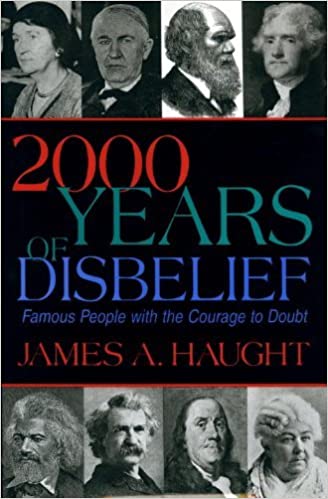This piece was reprinted by OpEd News with permission or license. It may not be reproduced in any form without permission or license from the source.
Values that later grew into liberalism began stirring in the epoch now known as The Enlightenment, starting more than three centuries ago, chiefly in England and France. It was an era when kings still ruled brutally by "divine right", and the church still sought to execute "heretics" holding irregular beliefs, or jail skeptics for blasphemy. Most people were agricultural serfs, working on lands inherited by wealthy barons and counts. The bottom-rung majority had virtually no rights.
But The Enlightenment roused a new way of thinking: a sense that all people should have some control over their lives, a voice in their own destiny. Absolute power of authorities -- either the throne or the cathedral -- was challenged. Reformers asserted that human reason and the scientific method can improve society and benefit nearly everyone.
The 1600s were a time of ugly intolerance, much of it stemming from alliances between church and throne. In England's notorious Star Chamber, controlled by the Anglican archbishop, Puritan and Presbyterian dissenters were forced to testify against themselves, then sentenced to have their ears cut off or their faces branded with markings such as S.L. (for seditious libeler). One victim, John Lilburne, became a public hero because he wrote pamphlets claiming that all people deserved "freeborn rights" not subject to king or church.
Europe was emerging from horrors of religious wars and massacres between Catholics and Protestants. Catholic France persecuted Huguenot Protestants. Jews were attacked cruelly and banned from certain nations, including England. Sporadic executions of "heretics" and "witches" still occurred. England's last accused witch was put to death in 1684. A few others were executed around Europe and the New World for another century.
This was the background that helped spawn Enlightenment reform.
England was shattered by civil war in the 1640s between Parliament and Puritans on one side versus King Charles I and Anglicans on the other. Charles was beheaded and the power of kings was reduced -- expanding an erosion that began four centuries earlier when barons forced King John to sign the Magna Carta, yielding certain rights.
By the late 1600s, some thinkers began pondering society and government:
Thomas Hobbes (1588-1679) wrote Leviathan asserting that people need a "social contract" to secure safe lives. In a dog-eat-dog natural state, he said, everyone suffers from "continual fear and danger of violent death; and the life of man [is] solitary, poor, nasty, brutish and short". Therefore, he said, people must yield power to a sovereign government to enforce order and protect them. Hobbes supported a king as the sovereign -- but the tide away from absolute kings already was flowing. Hobbes raised awareness that the social order is made by humans, not by God.
In his many writings, Hobbes repeatedly affronted the clergy. A bishop accused him of atheism, possibly punishable by death. The allegation subsided, then flared again. Nearing eighty, Hobbes hastily burned some of his papers and eluded prosecution.
John Locke (1632-1704) hatched notions of democracy, arguing that all people, male and female, deserve a degree of equality. He dismissed the divine right of kings, and advocated separation of church and state to avert religious conflict.
John Milton (1608-1674) was more than an epic poet who wrote in four languages. He also supported popular government and attacked state-mandated religion. When Parliament imposed censorship on writings, he defied a licensing requirement and published an Areopagitica pamphlet claiming that all thinking people are entitled to free expression of their beliefs. "Books are not absolutely dead things," he said. "He who destroys a good book kills reason itself." The principle of free speech and free press was furthered.
In France, Baron de Montesquieu (1689-1755) championed democracy and envisioned an elected government with power divided between executive, legislative and judicial branches.
Francois Marie Arouet (1694-1788) -- "that consuming fire called Voltaire", as Will Durant called him -- was a brilliant French writer who became a heroic champion of human rights. Endlessly, he denounced cruelties of bishops and aristocrats. Here's an example:
(Note: You can view every article as one long page if you sign up as an Advocate Member, or higher).





